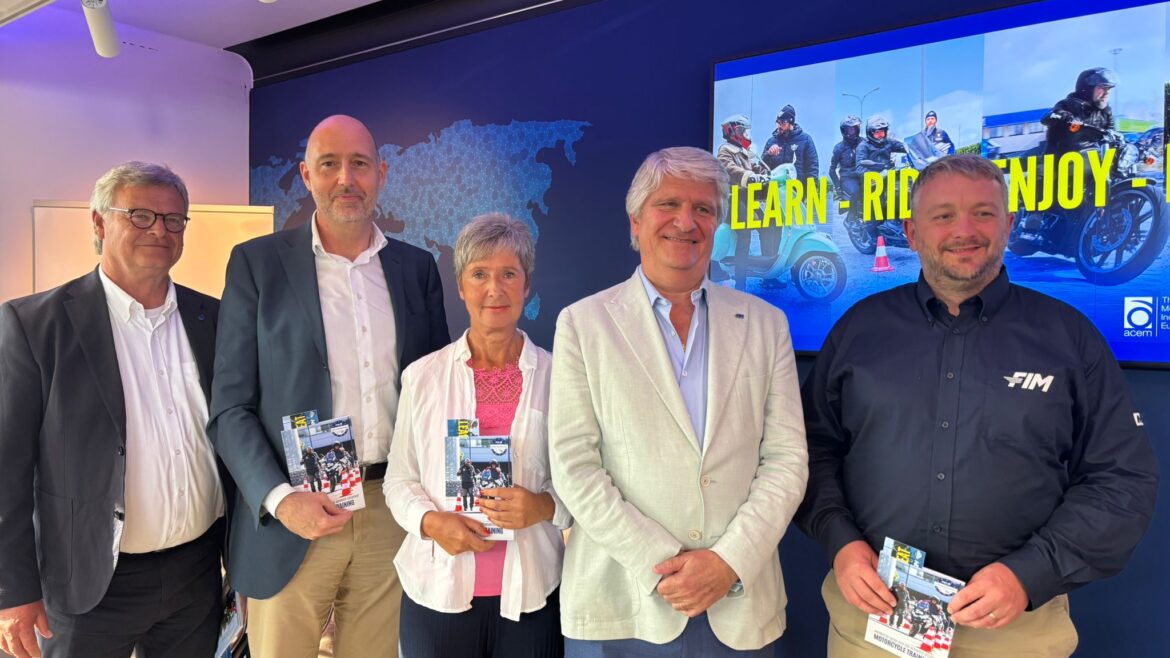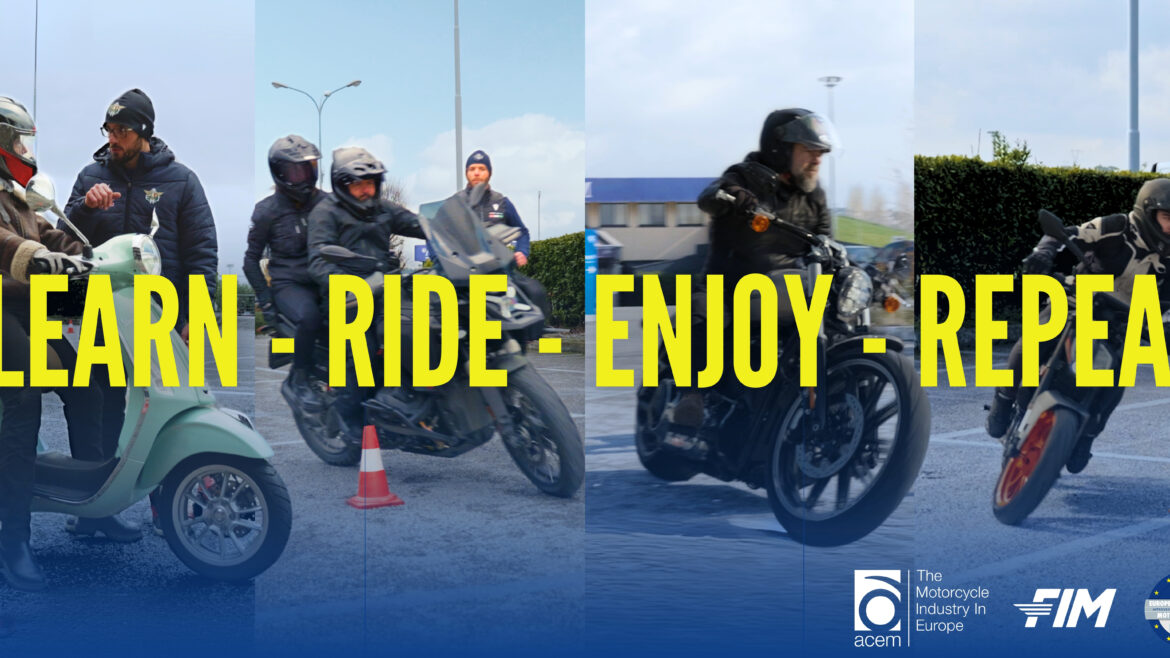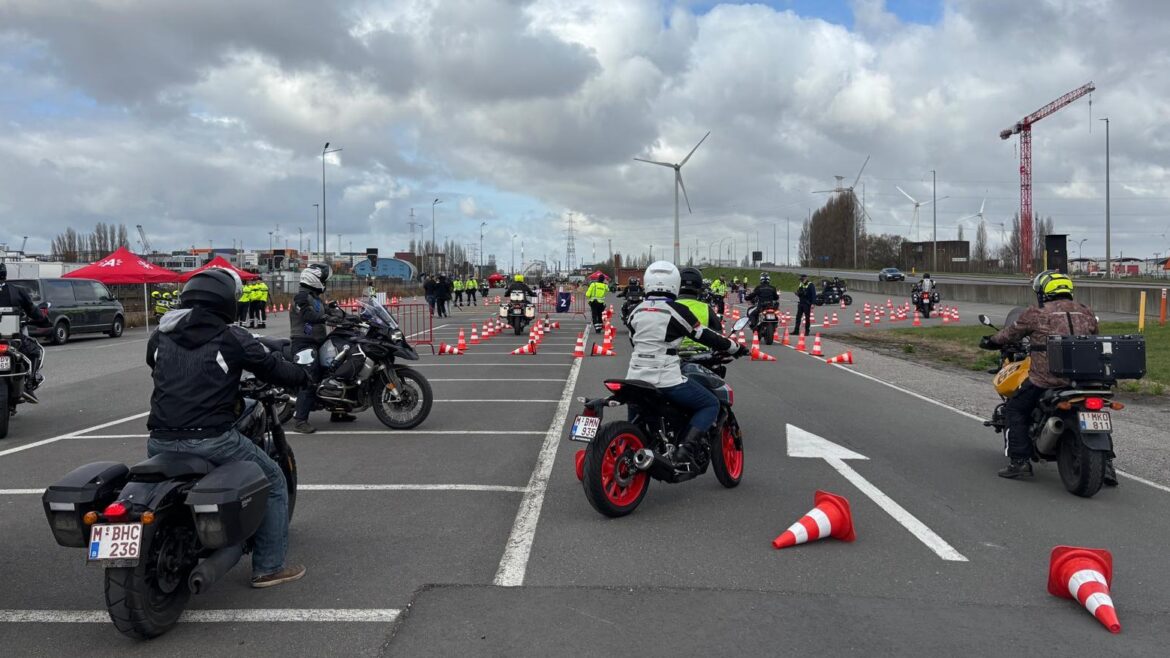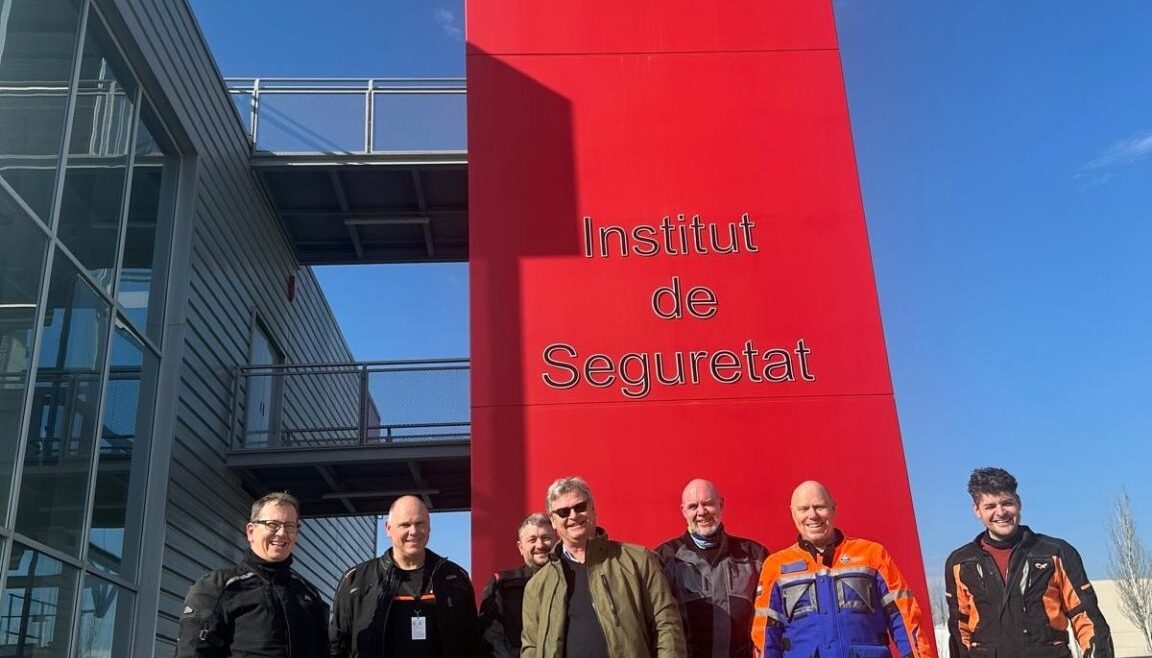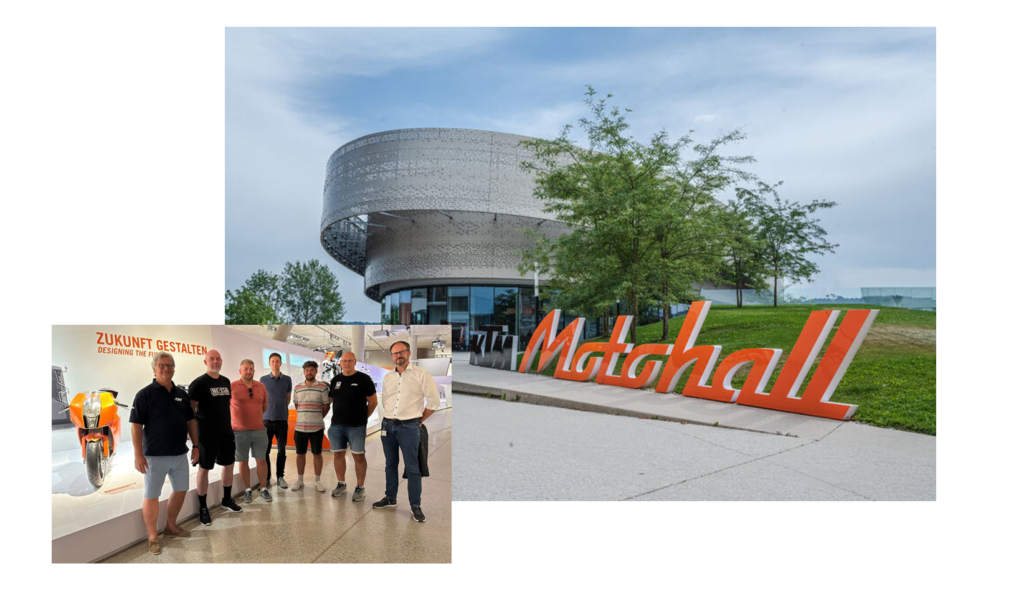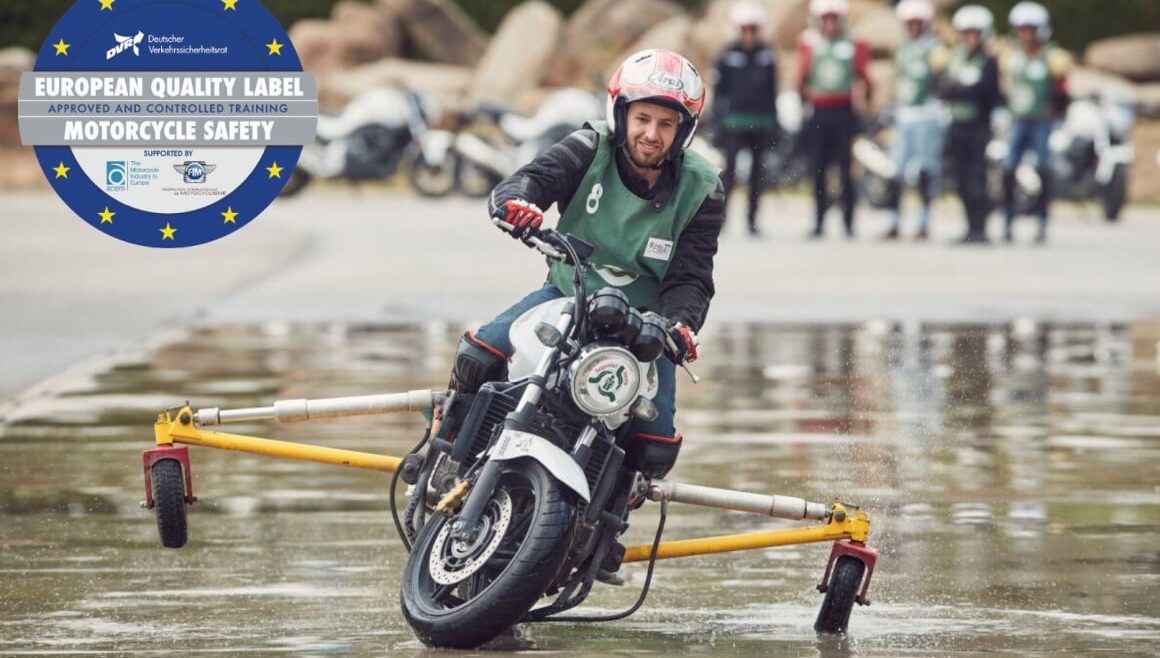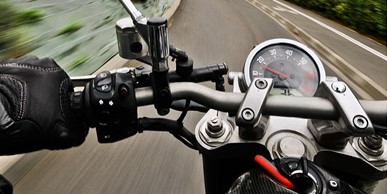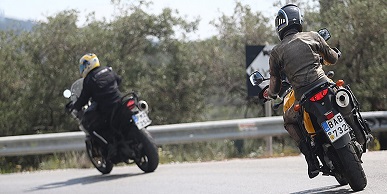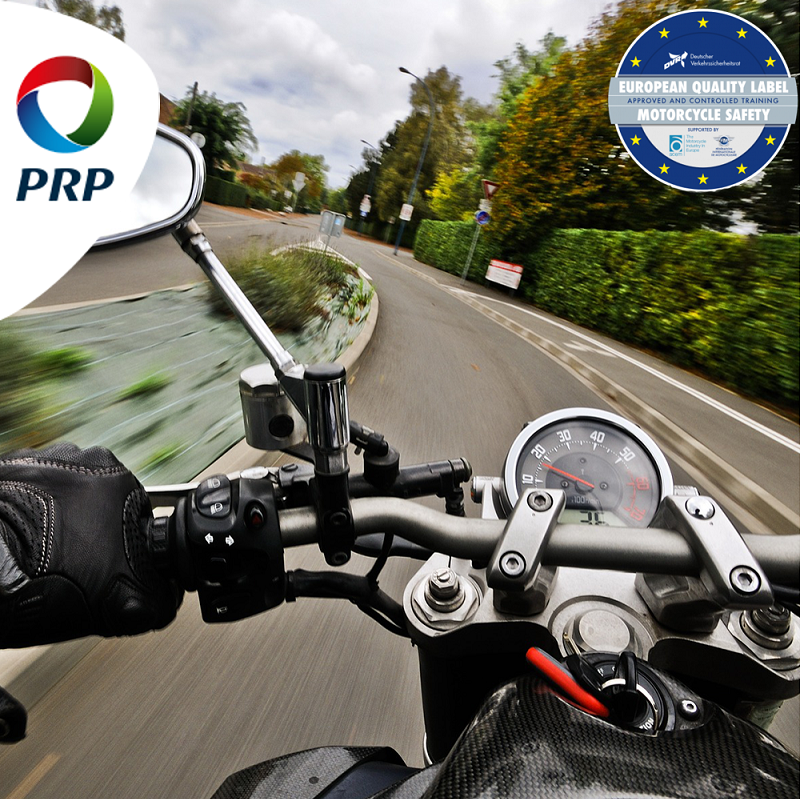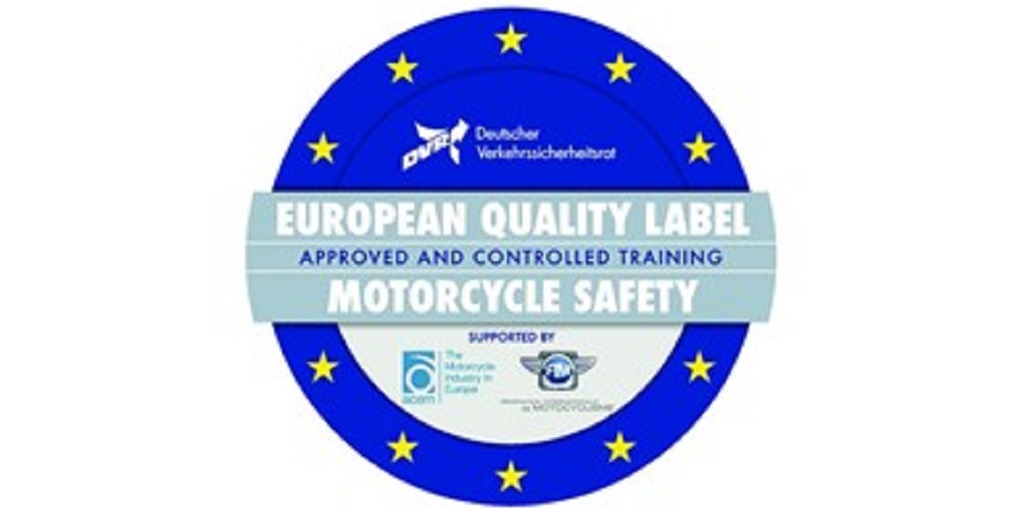Developed through collaboration with high-quality training schools and leading research institutions, a new evidence-based guide for motorcycle trainers targets the most frequent accident scenarios.
The European Motorcycle Training Quality Label launched the comprehensive Instructor Guidelines for advanced voluntary motorcycle training, last Friday at the Assen TT Circuit, one of the most iconic motorcycle racing weekends. The Guidelines are a key component of the large-scale European promotional campaign “Learn – Ride – Enjoy – Repeat” by ACEM, the European Association of Motorcycle Manufacturers and FIM, the Fédération Internationale de Motocyclisme.
Based on scientific accident analysis from the Connected Motorcycle Consortium and developed through a collaboration between high-quality training schools, awarded with the European Motorcycle Training Quality Label, and leading academic institutions, this initiative aims to enhance training standards across Europe by addressing the most frequent powered two-wheeler accident scenarios.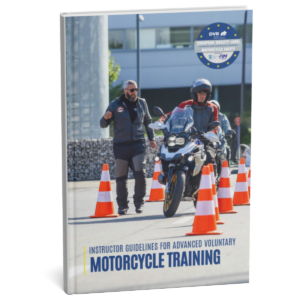
This innovative, evidence-based approach has enabled training experts and researchers to establish a training methodology designed to help riders develop the cognitive and practical skills necessary to anticipate and avoid the most common hazardous situations on the road. The guidelines aim to support riders in continuing their personal journey toward safer riding.
Training experts from certified schools’ such as KNMV (Netherlands), SMC (Sweden) and VSV (Belgium) were strongly involved in this process together with prominent academic partners coming from: the Ludwig Maximilian University of Munich (LMU), the Würzburg Institute for Traffic Sciences (WIVW), the Institute for Motorcycle Safety (IFZ), and Traffic Accident Research at TU Dresden (VUFO) and the Austrian Road Safety Board (KFV).
This initiative is about building a stronger safety culture within the European motorcycling community. It is a natural evolution of the European Motorcycle Training Quality Label and reflects a shared commitment to continuous learning, innovation, and responsibility.
The instructor guidelines will be offered under request and free of charge to all training schools interested in improving the quality of their post-licence training programmes. To ensure broader adoption, the guidelines will also be shared with organisations planning to establish voluntary motorcycle safety training programmes in countries where such options remain limited.
Quotes:
Antonio Perlot, ACEM Secretary General said:
“The European Motorcycle Training Quality Label is already a strong example of how industry, NGOs, trainers, and riders’ organisations can successfully collaborate to improve motorcycle safety. With the addition of leading academic partners, we are now taking this initiative to the next level by providing a practical toolbox for motorcycle instructors. Our goal is clear, to raise the quality of voluntary training across Europe and inspire riders to pursue lifelong learning, leading to higher levels of safety and riding performance.”
Dr. Sebastian Will, Würzburg Institute for Traffic Sciences (WIVW) commented:
“The Würzburg Institute for Traffic Sciences is proud to contribute its expertise in human factors research to this important initiative. By integrating a scientific perspective into advanced rider training, we help ensure that motorcycle safety is grounded in evidence-based methods. These Instructor Guidelines represent another step forward in equipping riders with the cognitive and motor skills they need to navigate real-world traffic scenarios more safely and confidently.”
Jesper Christensen, Director of the Mobility Commission, FIM added:
“Our goal is to create riders who can think for themselves—just like our pros in the sport. It’s about more than just technique. It’s about mindset. Awareness. Control. Whether you’re on a circuit, carving mountain roads or riding in a city, you need to be able to read the road and plan several seconds ahead. These guidelines bring that intelligence to the street.”

